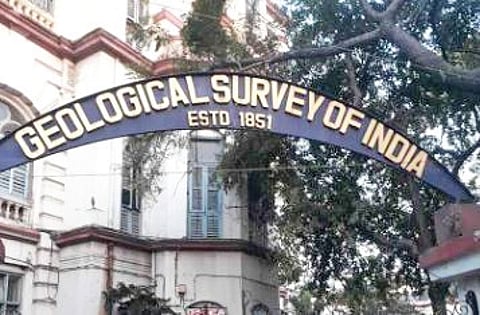

THIRUVANANTHAPURAM: The Geological Survey of India (GSI) – nodal agency for landslide prediction – has said that it could not issue an accurate early warning for Wayanad because of inadequate and inaccurate rainfall readings from the India Meteorological Department (IMD). The early warning system is generated based on the IMD rainfall data, according to GSI.
The IMD had issued an orange alert (115.6 mm to 204.4 mm rainfall) for the district on July 29 but the actual rainfall received was 372 mm on the day the twin landslides killed and displaced hundreds of people living on the hillsides of Meppadi panchayat.
The GSI had launched the early landslide warning system on a trial basis for Kerala on July 19.
According to GSI authorities, the early warning system on rain-induced landslides is dependent on the quality and accuracy of the rainfall data. On Sunday, when the intense rainfall that triggered the landslide was reported, the GSI issued a green warning for Wayanad.
According to experts, the state needs more rain gauges in landslide-susceptible areas, better coordination between various agencies, and more reliable data to mitigate such disasters in the future. It is estimated that 48% per cent of Kerala’s total land area – 38,865 sq km – is occupied by the Western Ghats.
Former GSI deputy director general C Muraleedharan told TNIE that a 10,000 sq km area of the 18,000 sq km spread of the Western Ghats in the state is prone to landslides.
As part of the National Landslide Susceptibility Mapping (NLSM) programme launched in 2014, the GSI has mapped landslide-prone areas across Kerala at a scale of 1:50,000, he said.
“GSI is now trying to narrow it down to a scale of 1:10,000 for landslide susceptibility zonation in critical sectors like Wayanad district,” Muraleedharan said.
He termed the lack of adequate rain gauges a major challenge.
“To mitigate such disasters in the future, we need a more reliable rainfall data. The current system is inadequate. In such critical locations, a rain gauge every 5 sq km is required for better and accurate predictions,” he said.
GSI Deputy Director General V Ambili said the early landslide warning system is 90 per cent accurate.
“GSI has been running the system in Nilgiris and Darjeeling since 2020 and the system will give better and accurate predictions based on the quantum of data we give and the reliability of the rainfall data. That day, we issued a green alert based on the rainfall prediction provided by IMD at 2.30pm. Sudden variations in the predictions may pose a challenge,” Ambili said.
She said the GSI is planning to give multiple modified bulletins the same day based on updated feeds to tide over the crisis in the future.
“There are agencies that can provide real-time satellite images and we are planning to agree with such agencies so that we get live satellite imagery for better monitoring. I believe in the next three or four years we will have a foolproof early landslide warning system,” she added.
‘WEATHER STATIONS TO BE LINKED WITH IMD NETWORK’
In an effort to improve weather predictions, discussions are on to integrate the automatic weather stations installed by various government agencies with the IMD network. There are weather stations installed by the irrigation department, KSEB, and other agencies.
“The discussions are in the initial stages,” IMD-Kerala Director Neetha K Gopal said. She said the landslides in Wayanad happened because of continuous rain. “Northern Kerala has been receiving heavy rain for so many days, and many factors might have triggered the landslides,” Neetha said. “We are in the process of finalising the land to set up the new radar system,” Neetha added.